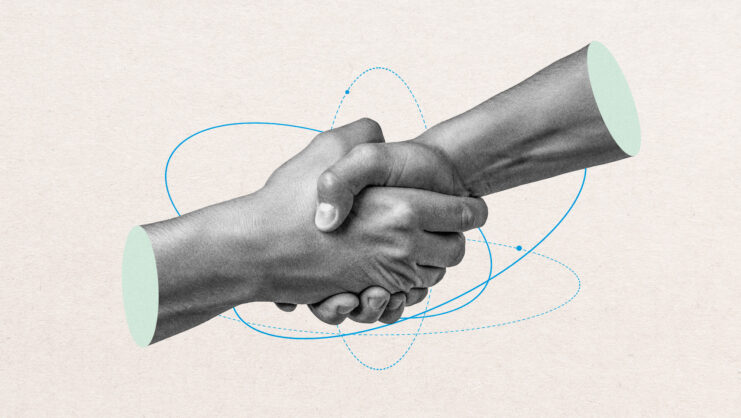We’re all expert negotiators because we spend a great part of our lives negotiating both personal and professional matters and we never stop learning.
I would like to reflect on some practical aspects of negotiation –beyond what we’ve learned in our books– about the way we communicate when debating with another party and the role played by the emotions.
Communicating in an effective, assertive way can improve the results of any negotiation and establish long-term connections with clients, suppliers, investors, partners… Establishing limits, making requests without feeling bad about it, speaking from the heart without feeling ridiculous, expressing who we are… all this is an innovating way of relating to other people and an introspective journey in which each person must feel comfortable with who he is.
When negotiating, I ask myself the following questions.
1. What can I ask for? What is feasible?
I need to know what to concentrate on. We often become obsessed with things that are not possible. I’ll have a better chance of getting what I want if I concentrate on what is viable, because there’s a limit to what I can ask for without being annoying.
For example, in a labor negotiation I may not be able to negotiate the base salary, but I can negotiate the bonus, the vacations, the car… or other things that together are worth more than the salary.
2. “Technically impossible” vs. “really impossible”
Is something really impossible, or am I just not talking to the right person? There are things that depend on finding someone who really does know and who wants to help us. In what I call the “technically impossible” cases, our ability to establish a good connection with the other person can make all the difference.
For example at an airport counter when the answer is “that’s not possible”, I ask myself if this really means “it’s complicated and I have no intention of doing it” or “I’d like to help you but I don’t know how” or “it really is impossible.” Depending on how I read the situation, I’ll then decide if it’s worth using my time and energy to insist, either by generating empathy, speaking with a supervisor, etc.
If we consider negative replies as “technically impossible”, we’ll be surprised by the number of exceptions and the number of people we find who are willing to make possible what’s impossible.
3. How can I turn the person I’m talking to into an ally?
That person we’re facing isn’t an enemy. He just has his interests and objectives and is concentrating on achieving them without thinking about ours. To change that dynamic, I try to “change myself into a person” in his eyes, and thus generate empathy.
I recently did an experiment with my boyfriend. We needed to convert some pesos into euros and called several foreign exchange offices to compare their rates. When he was on his tenth call, I made my first one, and spent a few seconds telling the person I was speaking with a little about myself and where I was from. At first he quoted me a rate similar to those at the other places. Then I asked him, “Can’t you offer me something better? A few pesos up or down make a big difference to me.” And he offered me the best rate we had discovered so far.
Was this just luck? Because I took the trouble to ask? Was it because I generated some sympathy? The fact is, it worked.
4. How can I communicate in an assertive way?
We are assertive when we express and communicate our needs and feelings firmly and respectfully, without dismissing or judging the other person. To do this, we need to be connected with who we are and we must feel comfortable when expressing our feelings.
When we negotiate, we often take commentary in a personal way and feel hurt. That’s when we become defensive and go into a passive or aggressive mode, or a combination of the two. The origin of many conflicts is not in what is said but in the way it is said. We should express ourselves in a clear, neutral way, with no prejudices or negative emotional language.
For example, if we receive a comment we think is out of place or insulting, we can answer aggressively (“you’re an idiot, you don’t understand anything”) or we can be assertive: “I’m sorry, but I find that comment painful and it makes me feel bad. I value and respect our relationship a great deal, and I’d like to ask you to please use a different tone.”
Quality communication depends on both sides. Before blaming the other person, I must ask myself “what is my responsibility in this situation?”, “how have we reached this point?” and “what can I do to sort things out?”
Communicating assertively yields some surprising results.
5. To sum up: when I negotiate I try to remember these personal 10 points
- Establish limits assertively, with firmness and respect. If I don’t impose limits, I can’t expect others to respect me. My “yes” is only valid when I’m also capable of saying “no”.
- Know how to listen to and respect the limits of the other person.
- I must take responsibility for my words and actions, and for the consequences of my decisions. Think before speaking.
- “Become a person” for the other person. Sharing who you are generates empathy.
- Smile, have a sense of humor. Knocking down barriers does not mean being soft or weak.
- Have a positive, realistic attitude. That way it’s easier for other people to get involved and help.
- Don’t take a setback as something personal. I’m only responsible for my attitude, not the other person’s.
- Trust your instinct. We process more information on a subconscious level than consciously. If we feel inside us that “something’s not right” it’s because “something’s not right”.
- Learn to ask for things and ask questions. Without fear or shame, in a polite way. If we don’t ask, we won’t know what we might get. Asking doesn’t mean begging, being desperate or being weak. It’s important to find the right way and the right time.
- Learn how to respond to, and accept, a “no”. I have to be willing to find respectful ways of transforming a “no” into a “yes” –and to accept a “no” when it’s definitive.
Please experiment with all these ideas to see what the result is. You can contact me at palmansa@faculty.ie.edu, at LinkedIn, at @almansap or at www.elrincondepaula.com.
© IE Ideas.











